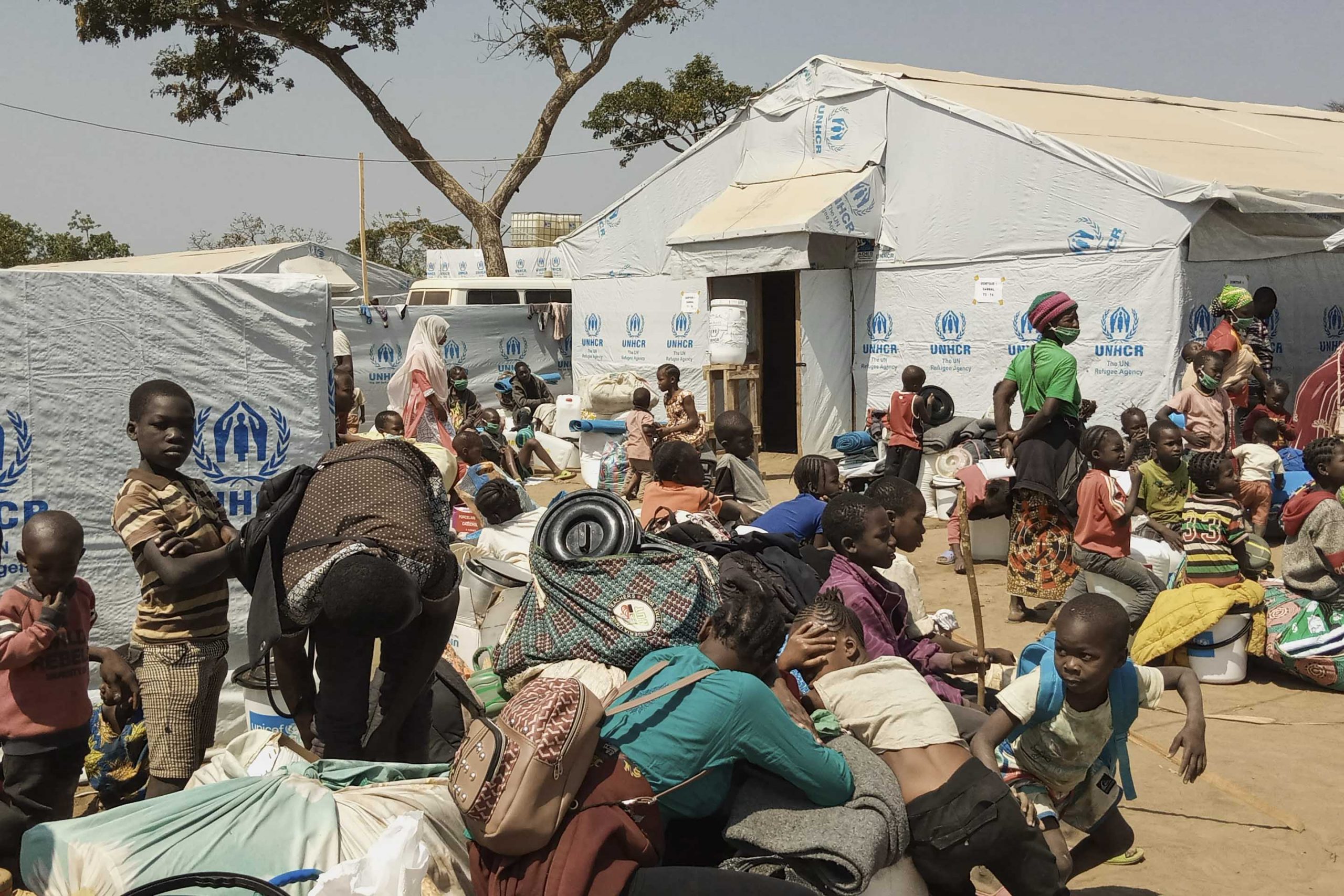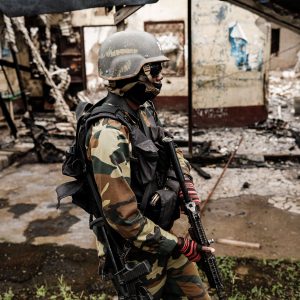Renewed flight from Central African Republic turmoil
A Central African Republic refugee helps people fleeing the most recent spate of violence there to settle into a Cameroonian camp.
Author:
8 February 2021

Salimane Oumarou fled to Cameroon in 2012 after the second civil war broke out in his native Central African Republic (CAR). Following a recent spate of violence, he has been helping his compatriots settle into the Gado-Badzéré refugee camp where he has lived for six years.
Oumarou was a worker in the Ministry of National Education and Scientific Research in 2011. He had no idea his life would be turned upside down the following year when rebel group Séléka – one of the many operating in the country – removed CAR’s government, led by then President François Bozizé, from power.
“I remember when I came [to Gado-Badzéré refugee camp] I had trauma. I was nervous and not relaxed. There were lots of problems, seeing a human being killed in cold blood, blood everywhere,” says Oumarou.
Now a guide in the camp, Oumarou has been welcoming fellow CAR citizens fleeing the violence that broke out after CAR’s 27 December elections, which saw incumbent Faustin-Archange Touadéra retain power. There have been 4 400 new arrivals in the camp according to the United Nations Refugee Agency. Since the first civil war 60 000 people have fled to neighbouring countries.
“Many of [the new arrivals] are tired because of the long journey to Cameroon. So I start by telling them that I was in the same condition some years back, that things will be okay,” Oumarou says.
The camp can hold up to 10 000 refugees. It was created in 2014 when the first batch of Central Africans arrived at the Cameroonian border. But with the additional 4 400 people and more arriving each day, the area is being expanded with new tents. Oumarou is helping with this.
As somebody who worked in education in CAR and who continues this effort in the camp, Oumarou is keen on seeing children, who make up 60% of the new refugees, go back to school. “Thirty-six classrooms have been constructed by [the United Nations Children’s Fund]. It will be good to see these children go back to school. Our children back in the day, when they were being asked to create toys, they could only design guns because that’s what was in their heads. Now when we go to schools, we tell them to create other toys they can play with – balls, many other things,” he explains.
CAR’s second civil war started in 2012 when numerous rebel groups under the Séléka militia accused the Bozizé government of failing to honour the peace deals that brought an end to the Central African Republic Bush War – the country’s first civil war. In the course of seizing several towns, Séléka’s growth led to the strengthening of Anti-balaka, a mostly Christian alliance of militia groups. The Séléka militia launched attacks on Christian civilians and the Anti-balaka did the same to Muslims in a war that is being fought on both political and religious grounds.
Related article:
“Since the crisis was socio-religious, being a Muslim and my wife a Christian, I had to stay safe first,” Oumarou says. “She accepted this and that’s how I found myself in Cameroon.”
His wife joined him in Cameroon eight months after Oumarou arrived. They have subsequently divorced. Despite being mournful about the state of affairs in his country, he believes he has a vital opportunity to serve people in distress.
“The crisis in the Central African Republic is really deep-rooted. There is a problem of instructions many people don’t understand. That’s how it got to brothers pointing guns at each other. Some of us have understood this and we are putting ourselves [into] service regardless of the religion,” he says.

Blocking the borders
Almost 600km from Oumarou’s refuge is Bangui, CAR’s capital. For about a month, rebels opposing the elections have barred close to 1 000 truckloads of goods and vital aid from Cameroon. Under a new umbrella, the Coalition of Patriots for Change (CPC), the rebels are claiming the polls had irregularities since most parts of the country did not vote because of insecurity.
They want to march to the capital and take power from Touadéra. The trouble has been further compounded by a ban placed on Bozizé, who could not contest the elections. It is believed Bozizé, a former high-ranking army officer, is behind the rebels. But he has distanced himself from the violence. The CPC have rampaged through the towns of Bangassou, Bouar and Baboua, and have encircled the capital.
Thirty trucks that attempted to cross into the CAR were sent back by the rebel coalition after they shot and injured two drivers. Truck drivers were instructed to pay $200 each to pass through the border. Ibrahim Cherif, one of the drivers who was attacked, says, “The rebels showed us where to sell fuel for some drivers who did not have cash in hand. They were not joking. They threatened to burn our trucks.”
The blockade around Bangui has already put millions of people who need critical aid in grave danger. The CAR relies heavily on Cameroon for imported products. Idriss Salimane, a Central African truck driver who imports perishable products to CAR, has firsthand experience of the dire situation in his country. “The ration I left home for my wife and children a month ago is already finished. I don’t know how they live there now,” he says. “I was planning to return.”
This recent spate of violence comes after the United Nations High Commissioner for Refugees voluntarily repatriated 200 refugees in early December last year. “I was planning to return [to CAR] after the elections but as you can see with everything going out there, there’s insecurity,” Oumarou says. “There are people who left and have been forced to come back and meet us again because all is not well. Rebel groups control two-thirds of the land and it doesn’t have any peace.”
Related article:
“Eighty percent of the Central African Republic is controlled by rebel groups that have vested interests in mining, racketeering and kidnapping,” says Paul Yombo, a researcher in international relations focusing on politics in central Africa. “Touadéra knew in 2016 when he became president [for his first term] that the major challenge … would be state-building.
“What is happening now is that UN peacekeeping forces alongside Russian mercenaries and Rwandan troops are defending Bangui, principally, and the territory around the capital, which is about 20% of the Central African Republic. We hope there won’t be a situation of complete chaos where even the capital will be engulfed by violence.”
Oumarou hopes peace will return to CAR, so he can go back with his four children, two of whom were born in the refugee camp in Cameroon. But if recent developments are anything to go by, they may have a long wait ahead of them.







